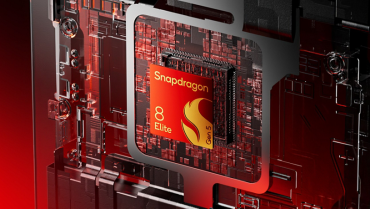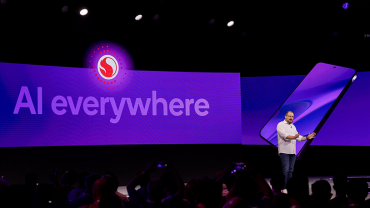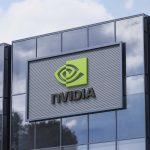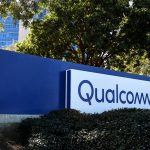
- Licensing Dispute
- Product Roadmap
- Semiconductors
Qualcomm Wins Full Legal Victory in Arm Licensing Dispute
5 minute read

Federal court ruling enables Qualcomm’s AI chip development by clearing processor licensing dispute with Arm Holdings
Key Takeaways
- Qualcomm secures complete legal victory as federal judge dismisses all remaining claims in Arm Holdings’ licensing dispute, following a late-2024 jury ruling that found no breach of license agreements.
- Stock prices move on court decision with Qualcomm shares rising 1.8% while Arm stock declines as investors react to the favorable ruling for the chip giant.
- Product roadmap uncertainty eliminated as the decision clears legal risks over Qualcomm’s Snapdragon X processors and Oryon CPU cores, enabling accelerated development of AI PC chips.
Introduction
Qualcomm emerges victorious from a high-stakes legal battle that threatened to disrupt its core processor business. A U.S. District Court judge in Delaware has dismissed the final claim in Arm Holdings’ lawsuit against the chip giant, marking a complete legal win for Qualcomm in their licensing dispute.
The ruling resolves allegations that Qualcomm’s subsidiary Nuvia violated architecture license agreements with British chip designer Arm. This decision removes significant uncertainty over Qualcomm’s ability to continue developing and selling its advanced processors without facing potential licensing restrictions.
Key Developments
The legal victory builds on a late-2024 jury decision that found Qualcomm did not breach its license agreement with Arm. The jury determined that Qualcomm’s CPU cores operated under adequate licensing arrangements, validating the company’s position.
However, the same jury deadlocked on whether Nuvia had breached its separate license commitments with Arm. This unresolved question allowed Arm to continue pursuing litigation until the recent court ruling definitively dismissed those remaining claims.
The dispute centers on royalty rates for Arm’s technology used by both Qualcomm and Nuvia. When Qualcomm acquired the startup and integrated its technology into its chips, the arrangement suggested lower royalty payments to Arm, creating the foundation for the legal conflict.

Market Impact
Financial markets responded swiftly to the court decision. Investing.com reports Qualcomm shares gained 1.8% as investors welcomed the removal of legal uncertainty. Arm Holdings stock declined in response to the unfavorable ruling.
The market reaction reflects investor relief over eliminated risks to Qualcomm’s product pipeline. The licensing dispute had created uncertainty around the company’s ability to freely develop and market its Snapdragon processors without potential restrictions or higher royalty obligations.
Strategic Insights
The ruling enables Qualcomm to accelerate development of AI-focused computing products without legal constraints. The company can now advance its “AI PC” laptop chips and next-generation processors targeting artificial intelligence and automotive markets with greater confidence.
For Arm, the decision creates pressure to adapt its licensing model as competition intensifies from open-source alternatives like RISC-V architecture. The case exposes challenges in Arm’s traditional licensing approach as the semiconductor industry pursues more aggressive merger and acquisition strategies.
The outcome strengthens Qualcomm’s position in high-performance, low-power computing markets. With legal clarity secured, the company can focus resources on advancing its Snapdragon and Dragonwing product lines without diverting attention to licensing disputes.

Expert Opinions and Data
Qualcomm’s general counsel emphasized the significance of the victory for innovation rights. “Our right to innovate prevailed in this case and we hope Arm will return to fair and competitive practices in dealing with the Arm ecosystem,” the executive stated.
Arm maintains its commitment to challenging the decision through appeals. The company expressed confidence in its legal position while emphasizing its dedication to protecting intellectual property rights, though it indicated no immediate plans to terminate Qualcomm’s licensing arrangements.
Legal battles between the companies continue on other fronts. Qualcomm maintains a separate lawsuit against Arm for alleged contract breaches, with trial proceedings scheduled for March 2026, ensuring ongoing tension between the technology partners.
Conclusion
Qualcomm’s comprehensive legal victory removes a significant business risk while establishing important precedents for intellectual property licensing in semiconductor mergers. The decision validates the company’s integration of Nuvia technology and licensing practices, providing clarity for future product development.
The ruling enables Qualcomm to pursue its AI computing strategy with renewed focus while pressuring Arm to reconsider its licensing approaches. This case now serves as a reference point for how courts evaluate licensing disputes in technology acquisitions across the semiconductor industry.








